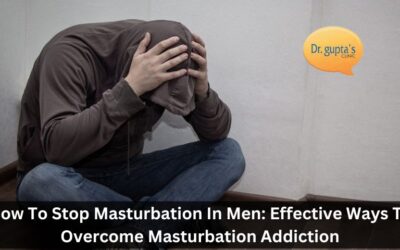Sexuality is an essential aspect of adult life that is often cherished and valued. However, it is necessary to recognize that sexual health is not just about physical well-being but also mental health. According to the Canadian Mental Health Association, at least 20% of the population struggles with mental illness, which can impact their sex life and overall well-being. This can affect individuals and their partners, and seeking support from a sexologist or doctor can be beneficial.
Sex Is Also A Matter Of Mind
One key aspect to understand is that sex is not just a physical act but also involves the mind. Feelings and thoughts play a vital role in a healthy sex life, and mental illnesses such as depression and anxiety can strongly affect arousal and desire. For example, when someone is struggling with their mental health, sex may be the last thing on their mind, and this can impact their sexual relationship with their partner.
Mental illness can also affect a person’s self-esteem and perception of their worthiness of sexual attention. Unrealistic expectations about their body or sexual orientation can lead to low self-esteem, which may affect their ability to fully engage in a healthy sexual relationship. Consulting with Dr Gupta can help individuals address these issues and improve their self-esteem and sexual well-being.
Substance Use Can Also Impact Sexual Health
Regretful sexual behaviours may occur under the influence of drugs or alcohol, and addiction or mental illness can make finding suitable partners challenging. Seeking counselling and guidance from a sexologist can provide support in addressing these challenges and making healthier choices.
Certain Medications Often Affect Your Sex Life Too
Additionally, certain medications used to treat mental illnesses may have side effects that can impact sexual health. For example, antidepressants can inhibit arousal, and other medications may cause temporary impotence or weight gain, affecting sexual self-confidence. Consulting with a sexologist can provide guidance on managing these side effects and improving sexual well-being.
Real Sex Is Complex
It is important to recognize that real sex is complex and differs from depictions in movies. It involves various emotions, intimacy, sensuality, and creativity, but also confusion, mistakes, misunderstandings, and different sexual desires. If individuals are struggling with orgasm, arousal, or finding sex stressful, seeking guidance from a sexologist can be helpful in addressing these issues.
For partners of individuals struggling with mental illness, common concerns may arise regarding changes in desire levels. It is essential to approach these issues with empathy and understanding, recognizing that the disease, not the partner, may be affecting the sex life. Open communication and support can help navigate these challenges and strengthen the connection with the partner.
Conclusion
In conclusion, sexual wellness is a crucial aspect of human life, and mental health plays a significant role. Consulting with a sexologist can provide support and guidance in addressing challenges related to mental illness, substance use, medication side effects, and other complexities. In addition, by nurturing healthy sexual relationships through communication and understanding, individuals can improve their sexual well-being and overall quality of life.
For more information, please visit the website.
Website: https://www.drguptas.com/
You can also contact us through mail on: drguptasclinic@gmail.com
Or can also call us on: +91 9831834215
Related Blogs
How To Stop Masturbation In Men: Effective Ways To Overcome Masturbation Addiction
Are you in the habit of masturbating a lot? If yes, then you are on the right page! Masturbation is a natural and healthy aspect of human sexuality, contributing to sexual pleasure and overall sexual well-being. However, when it becomes an uncontrollable masturbation...
10 Effective Home Remedies For Vaginal Discharge
Many women have white discharge, also known as leucorrhoea, which is an issue that usually affects young girls of school age. This discharge problem occurs at a certain time period of the menstrual cycle. Girls and women shouldn't worry because the amount of white...
PCOD Diet: Foods To Eat And Avoid
Many immature or partly developed eggs are released by the ovaries as a result of polycystic ovarian disease (PCOD), which leads to cyst formation. Reduced symptom severity is a primary goal of PCOD diet and therapy. Indications of PCOD include painful or irregular...




